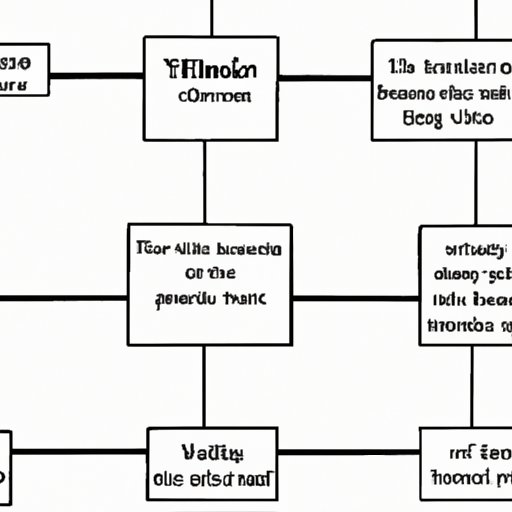Introduction
Writing a novel can be an intimidating task for any author, but it doesn’t have to be. With the right preparation and planning, anyone can create a compelling story that will keep readers hooked from the first page to the last. In this article, we will explore where to begin writing a novel by looking at five key topics: analyzing the genre, developing characters and plot, creating a timeline, outlining the structure, and writing the first chapter.
Analyzing the Genre
The first step in writing a novel is to analyze the genre you are writing in. This means understanding the conventions of the genre and how they should be applied to your story. For instance, if you are writing a romance novel, you will want to focus on building strong relationships between the characters, while if you are writing a science fiction novel, you will need to craft a world that is both believable and entertaining. By understanding the conventions of the genre, you can ensure that your novel will appeal to readers who are familiar with the genre.
Developing Characters and Plot
Once you have chosen a genre, it’s time to start developing characters and plot. The best way to do this is to brainstorm ideas for characters and plotlines. Ask yourself questions such as “what kind of person would be interesting to read about?” or “what kind of events could drive the story forward?” Make sure to keep notes of all your ideas so that you don’t forget them later. Once you have some ideas, start connecting the characters to the plot. Think about how each character’s actions will affect the overall story and how they will interact with each other. This will help you create a more cohesive story.
Creating a Timeline
Creating a timeline for your story is an important part of the novel-writing process. It helps you keep track of the events in the story and keeps your writing focused. Start by determining the timeline for the story. Ask yourself questions such as “how long will the story take place over?” and “what are the key events that need to happen?” Once you have established the timeline, map out the chapters and set goals for each one. This will help you stay organized and ensure that you are progressing in the right direction.
Outlining the Structure
When it comes to outlining the structure of your novel, there are several options available. You can choose a linear structure, which follows the chronological order of events, or a nonlinear structure, which jumps around in time. You can also use a combination of both. Once you have decided on the structure, map out the chapters and decide what each one will be about. This will help you stay organized and make sure that each chapter has a clear purpose.
Writing the First Chapter
Now that you have done all the planning, it’s time to start writing! The first chapter is often the most difficult, so it’s important to get into the right mindset. Take a few moments to reflect on what you want to achieve with the story and why you are writing it. Once you have a clearer idea of your goals, you can start writing the first draft. Don’t worry too much about making it perfect; just focus on getting your ideas down on paper. Once you have written the first draft, take some time to revise it and make sure it meets your expectations.
Conclusion
Writing a novel can be a daunting task, but with the right preparation and planning, anyone can create an engaging story. We have explored five key topics that will help you begin writing your novel: analyzing the genre, developing characters and plot, creating a timeline, outlining the structure, and writing the first chapter. Keep these tips in mind and you will be well on your way to becoming a successful novel writer.
(Note: Is this article not meeting your expectations? Do you have knowledge or insights to share? Unlock new opportunities and expand your reach by joining our authors team. Click Registration to join us and share your expertise with our readers.)
